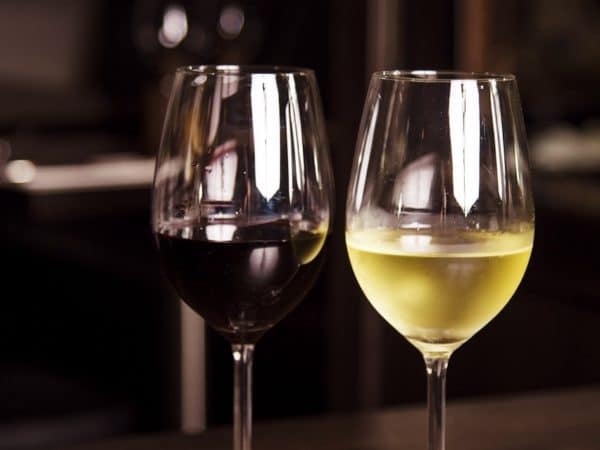What goes best with cheese: Red wine or white wine?

 It turns out that wine and cheese do go together rather heavenly. So, what goes best with cheese?
It turns out that wine and cheese do go together rather heavenly. So, what goes best with cheese?
Put away that heady red in favour of a nice dry white.
That’s the conclusion from researchers at the Centre des Sciences du Goût et de l’Alimentation (CGSA – Centre for Taste and Feeding Behavior) in Dijon, France, where a new approach to measuring taste has been created, one which takes the development of flavours over time into consideration.
“Numerous recommendations can be found in the gastronomic and popular literature on what makes a “good” or “bad” wine–cheese combination,” say the study’s authors, “However, not that many research papers can be found on the impact of cheese on wine perception.”
Researchers had 31 tasting participants sample and comment on four wines – two reds, a sweet white and a dry white – first on their own and then in sips interspersed with bites of one of four different cheeses. Overall, they found that participants liked the wines better when tasted along with the cheese, a result which speaks to the ability of the cheeses to diminish some of the more off-putting sensations such as astringency and sourness found in some wines.
“Cheese intake in-between wine sips changed the dynamic characterization of wines,” say the study’s authors. “In both red wines, the 4 cheeses decreased the duration of dominance of astringency and increased that of red fruits aroma. In the sweet white, the duration of dominance of sweetness (the main descriptive attribute) was not changed by cheese intake. In the white dry wine, cheeses had an impact on the main aroma (citric).”
Lead author of the study, Mara Galmarini at the CGSA, said that it’s likely the fat content of the cheeses which coats the mouth and provides a bit of a buffer against the wines’ more sour and astringent notes.
In terms of preference between red and white, Galmarini says that when it comes to a good wine-cheese combo, a refreshing white should win out over a tannin-laced red any day. “If you have many cheeses, better to serve a white wine,” she says in conversation with NPR Food.
The results were made possible by a new technique for evaluating flavour, called temporal dominance of sensations or TDS. Whereas other methods of evaluation involve tasters giving an overall description of a food’s flavour(s), often coupled with a numerical rating, TDS tries to tease out how a food’s taste can change over the time it takes to ingest it, and, in the case of the wine and cheese pairing, how the alternating flavours can impact each other during tasting.
The technique is a welcome addition to food sciences, says Charles Spence, an expert on sensory evaluation at Oxford University. The temporal evolution of a food’s flavours “has been kind of ignored previously, perhaps because it has been harder to get a dynamic sense of how perception is changing,” says Spence.
The science of taste –and the matching of tastes to consumer interests– is big business. “There’s no average consumer or universal product,” says Chris Findlay, founder of sensory and consumer research firm, Compusense in Guelph, Ontario. The company specializes in product testing for brands such as Jack Daniel’s as well as software for taste-testing called the Five Sensory Analysis Software, used by food science researchers worldwide.
“The sense of smell is very huge for us,” Findlay said in conversation with the Guelph Mercury.
People can detect up to a billion odors, he says, but “the challenge, really, is naming them.”

